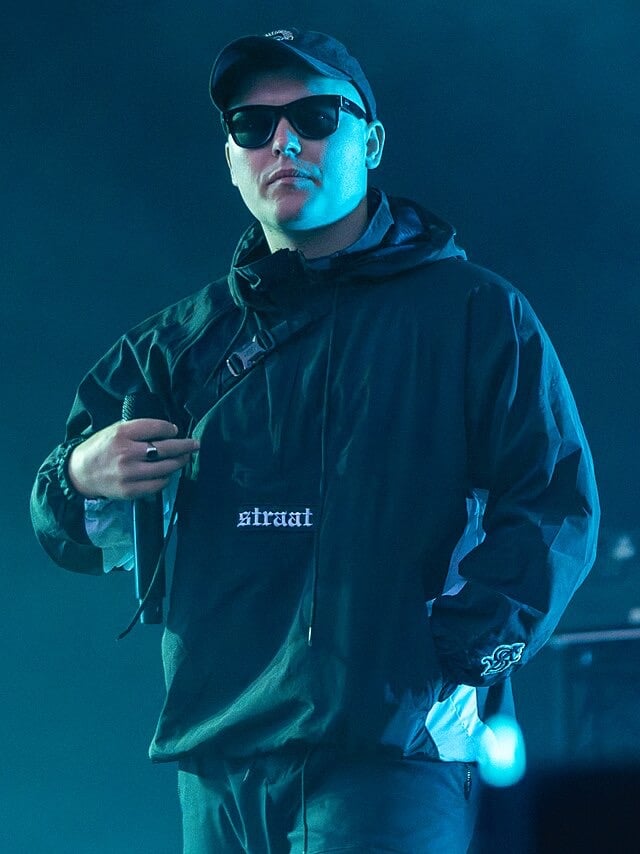The Crown Prosecution Service has announced it will appeal against a chief magistrate’s decision to throw out terrorism charges against a member of Irish rap group Kneecap.
Liam Og O hAnnaidh, 27, was charged with allegedly displaying a flag in support of proscribed terrorist organisation Hezbollah during a London concert last November. However, the case was dismissed in September due to what the court deemed a procedural error.
Chief magistrate Paul Goldspring told Woolwich Crown Court that the charge brought against O hAnnaidh was “unlawful” and that he had no jurisdiction to try the case, effectively ending the prosecution before it could proceed to trial.
On Tuesday, a CPS spokesperson confirmed the appeal decision. “We are appealing the decision to dismiss this case as we believe there is an important point of law which needs to be clarified,” they stated.
The dismissal centred on a technical dispute over legal procedures. Chief magistrate Goldspring agreed with O hAnnaidh’s defence lawyers that prosecutors were required to seek permission from the Attorney General before charging the rapper. This permission should have been obtained prior to informing O hAnnaidh on May 21 that he would face terror charges.
However, the CPS maintains a different interpretation of the legal requirements. It is understood their position is that Attorney General permission only needed to be secured before O hAnnaidh’s first court appearance, which took place approximately one month after he was informed of the charges.
The prosecution alleges that O hAnnaidh can be seen in footage from a performance at the O2 Forum in Kentish Town, north London, wearing and displaying the Hezbollah flag whilst stating “up Hamas, up Hezbollah” to the audience.
Hezbollah is designated as a proscribed terrorist organisation under UK law, making it illegal to express support for the group or display its symbols in public. Hamas is similarly banned.
The decision to appeal comes as Attorney General Lord Hermer issued a warning to Shadow Justice Secretary Robert Jenrick regarding public comments about the case. Lord Hermer asked Jenrick to “carefully consider any further public comments” to avoid prejudicing potential future proceedings against O hAnnaidh.
Jenrick had previously written to Lord Hermer demanding an urgent inquiry into the matter. The Shadow Justice Secretary claimed the situation “raised serious questions about the competence of all those involved” in bringing the original prosecution.
The Conservative MP’s intervention reflects political concern about how terrorism-related cases are handled and whether proper procedures are being followed by prosecuting authorities.
Following the hearing in which his case was dismissed, O hAnnaidh vowed that Kneecap “would not be silenced”. The rapper characterised the prosecution as an attack on free expression rather than a legitimate counter-terrorism measure.
Speaking after the court decision, O hAnnaidh insisted the legal process was never genuinely about him, “any threat to the public” or actual terrorism. His comments suggest he views the prosecution as politically motivated rather than based on legitimate security concerns.
Kneecap, known for their provocative lyrics and confrontational political stance, rap primarily in Irish and have become controversial figures for their outspoken support of Irish republicanism and criticism of British policy in Northern Ireland.
The band has previously courted controversy through their music and public statements, often addressing contentious political issues related to the Northern Ireland conflict and British-Irish relations.
The Crown Prosecution Service’s decision to appeal means the legal battle is far from over. If successful, the appeal could result in O hAnnaidh facing trial on the original charges, though the timeline for any such proceedings remains unclear.
The case raises significant questions about the procedures surrounding terrorism prosecutions in Britain. The technical dismissal highlights the importance of following precise legal protocols when bringing charges under counter-terrorism legislation.
Attorney General permission requirements exist as a safeguard to ensure terrorism charges are appropriately authorised at the highest levels of government before prosecution proceeds. The dispute in this case centres on exactly when in the process that permission must be obtained.
If the CPS appeal succeeds in establishing their interpretation of the law, it could have implications for how future terrorism cases are processed through the courts. Conversely, if the appeal fails and the chief magistrate’s ruling is upheld, it may require prosecutors to adjust their procedures for obtaining Attorney General permission at an earlier stage.
The outcome will be closely watched by legal experts, civil liberties organisations, and those involved in counter-terrorism policy. The case touches on tensions between freedom of expression, political activism, and laws prohibiting support for terrorist organisations.
For O hAnnaidh and Kneecap, the appeal means continued legal uncertainty. Whilst the initial dismissal represented a victory, the renewed prosecution effort demonstrates authorities’ determination to pursue the case through available legal channels.
The controversy surrounding the case reflects broader debates about where the line should be drawn between provocative political speech and illegal support for terrorism. These questions have become increasingly contentious in recent years as conflicts in the Middle East generate passionate responses within British communities.
Follow for more updates on Britannia Daily
Image Credit:
Mo Chara — photo by Raph_PH (extracted / cropped), licensed under CC BY 2.0 (commons.wikimedia.org)



